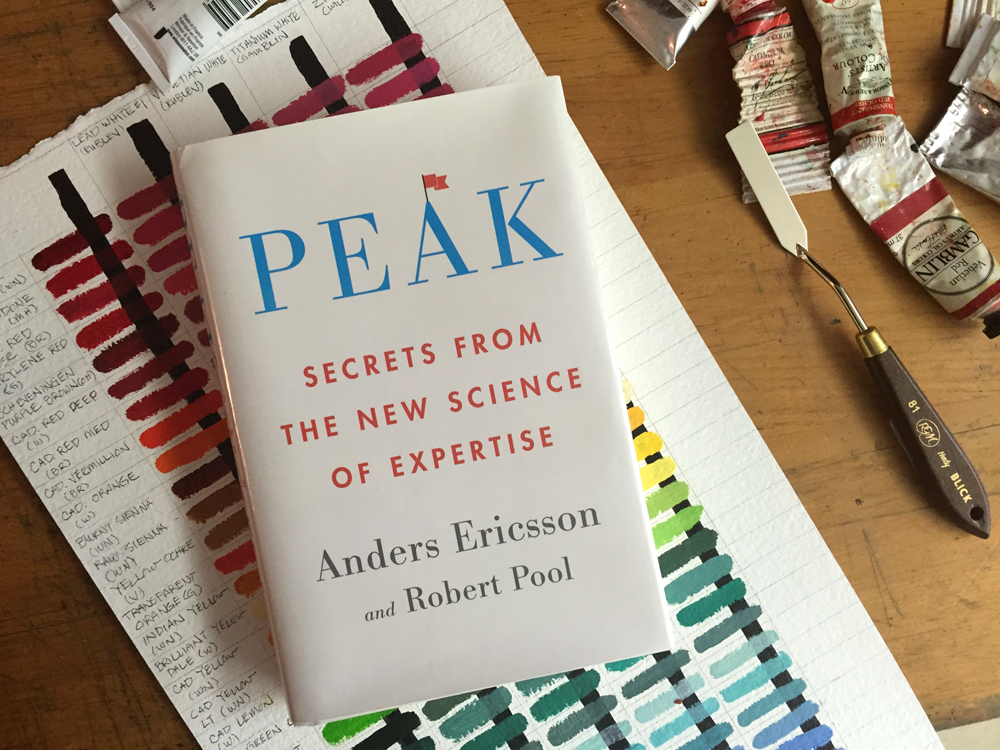Inevitably, fighting for skills to continue to grow is a ninja way to be success.
This is because, when our skills are stagnant, our income will automatically be stuck and just like that.
Our income level is ultimately a reflection of the skill level we have. When our income is low or stagnant, it may be a reflection of our low skills, or because our skills never increase.
How do we keep our skill level from being stuck continuously, and drowning in sorrow?
Professor Anders Ericsson, one of the pioneers in the science of expertise once wrote an interesting statement in his book: PEAK – Secrets from the New Science of Expertise.

He wrote that many people’s skills are stuck because they have the assumption that if the flying hours are high or the work experience is long, their skills will automatically increase.
He says this assumption is wrong. Because long work experience will not necessarily improve our skills, if we only do the same thing over and over again and monotonously. It’s like a person who has 10 years of work experience is not necessarily an expert. Why ? Because maybe he did the same thing for 1 year, and then repeated for 10 times.
In the book it is even written, in many professions, that the longer a person’s work experience, the worse his performance. For example, in a study, it was found that specialist doctors who had a practice period of 10 years actually performed worse than specialist doctors who had only practiced for 2 years.
This phenomenon occurs in many other professions. Why? The researcher writes: because many people are stuck in their comfort zone, doing the same thing over and over, without full awareness to continue to do skills improvement. Finally: long work experience has no impact at all on improving skills; it even makes performance decrease because it is increasingly saturated with repetitions that keep repeating monotonously.
That’s what happens to many people who work in offices. They come to work every day, do relatively the same work patterns, and without full awareness to do skills improvement. The result is dark: their long tenure does not have a significant impact on improving skills.
What are the steps should be taken so that our skills can grow, and not getting stuck?
Professor Anders Ericsson wrote, the best way we should do so that our skills continue to grow is to do what he calls “DELIBERATE PRACTICE”. This tip refers to a deliberate and systematic effort on our part to improve skills.
Mistakes of many people so far in undergoing work experience: never intentionally and seriously take a series of actions to improve skills.
They only work as is and have never systematically carried out a series of exercises to improve their skills (or carried out deliberate practice continuously).
The next question is, then how to carry out deliberate practice effectively? Here are 2 principles that must be followed so that the training process takes place successfully.
Deliberate Practice Principle #1: Have Specific and Concrete Skills Improvement Targets
The first principle in carrying out deliberate practice is: we have super specific targets or goals when we want to strive to improve skills.
For instance, when we want to improve skills in making presentations; What skill areas do we want to improve? What are the skills in making interesting infographics; or create emotional storytelling that needs to be included in the presentation material; or skills in making an attractive image display?
Another example: when we want to improve our article writing skills for personal branding; What skill areas do we want to improve? What are the skills in compiling article outlines; or skills in creating flowing stories; or skills in assembling data and arguments so that articles become more powerful?
After understanding in what skill area we want to grow, then set a target for improvement. For example, we become more proficient in designing beautiful presentation images. Or we are increasingly skilled in assembling evocative story sentences.
Specific and clear targets will make our deliberate practice process clear. So it doesn’t just flow as it is, and it often makes our skills stuck.
Deliberate Practice Principle #2: There must be feedback or feedback on the results of our practice
This is an important principle too. We will know whether our skills are growing or not if there are training results that can immediately tell us the progress we are making, and provide feedback on our work.
Example: after we practice making an attractive presentation design, we can ask for feedback from our boss or coach who will provide feedback, whether our work is better or not. This is where the importance of the role of the coach or boss who can act as a mentor. Its main task is to provide feedback on the results of the exercises we have done.
Another way to get feedback: can be directly from the response of blog readers who read your article. Or if you learn about FB Ads skills, the feedback is directly from the results of the ads that we post, whether they are good or fail to generate sales. If the skills are about investment, the feedback is the result of the investment we made. Or if you learn online selling skills, the feedback is the result of the sale, whether it sells or not.
Bottom Line
Through that feedback, we come to know whether our skills are growing better or not. And if the results of our practice are still not good, then we can immediately use other methods or methods so that the results of the skills improvement training become more perfect.
Thus, the two key principles in conducting effective Deliberate Practice. Now think about it first: what specific skills do you want to grow? And formulate specific targets that you want to achieve.






